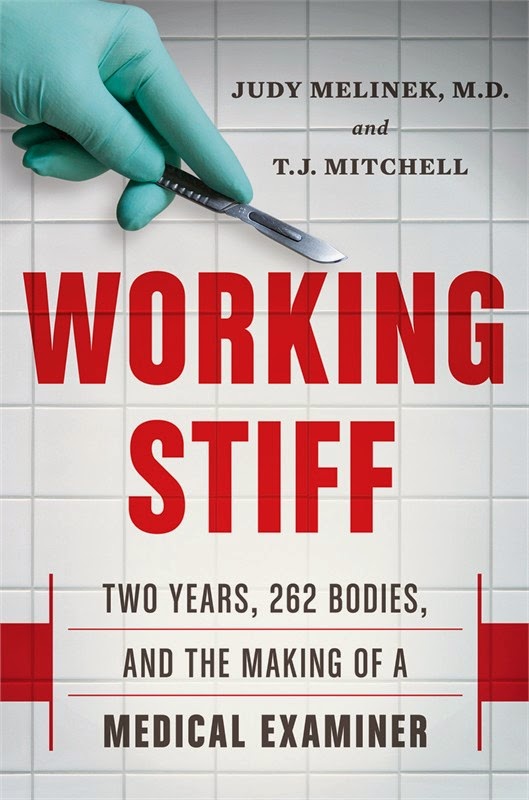Is there really such a thing? Recently, one of my consult reports was referred to in the news media as being "independent." It struck me as odd, because I had always been taught that a medical examiner's system was truly independent: independent of influence by law enforcement, and independent of the desires of a particular private interest (such as the family of the deceased or the insurance company), who may have a vested interest in the outcome of a death determination.
Yet in my professional experiences working as a consultant reviewing the work of countless coroners and medical examiners, I have been struck by how much their assessments rely on sometimes shoddy investigative work, limited resources in difficult economic times, and poor techniques or training. A good pathologist or coroner may reach the wrong conclusion on a case (e.g. mistake a homicide for an accident, or a suicide for a natural death) if the people at the scene of death hide or alter the evidence; if the police are anxious to "close the case" and fail to investigate certain leads preferring an easy answer; or if limited resources fail to provide an answer. One example would be limited toxicology screens designed to pick up only common drugs of abuse, which are used in many Coroner's offices nationwide. These tests will miss many antidepressants or antipsychotics, and will also miss many of the current designer drugs available on the street, and now over the internet.
So is a paid consultant's report truly independent? Clearly when I am being paid by an attorney or family member who questions the official assessment of a death they are paying me for my time and expertise: the hours of work it takes to review and investigate a case. I have also done and continue to do some pro-bono work, but I have been actually been told by attorneys, mind you, that that is considered more biased, as I can be perceived as a zealot when testifying. Ultimately, the question remains: does the fact that I am being retained by someone who might disagree with the official assessment, or has something to gain from a change in the death determination automatically make me biased?
I don't think so, because otherwise I wouldn't do it. I tell attorneys frequently that there may be a good chance I will agree with the original Coroner's assessment. Many times by hearing about the case over the phone and by knowing the reputation of the office or pathologist who did the autopsy I can tell a client with some confidence whether my conclusions will probably be able to help their case, or not. If not, they usually walk away, and sometimes find another expert who disagrees with me. But every once in a while even well-funded, accredited offices with pathologists who are well trained and honest make mistakes. And when they do I would hope they would afford my work the same degree of respect I afforded them: spend time reviewing it, see the bases for the opinions, and if they disagree, argue based on the facts of the case instead of attacking me personally.
Sadly, this has not always been my experience. I have had pathologists call me, incensed that I have disagreed with them, and start questioning other cases I have done, having spent their time investigating me instead of looking again at the conflicting facts in their own case. I have also been attacked in court for being a paid consultant, with insinuations made that I was looking for more money or for publicity. There is no logic to the attacks: I have nothing to gain by charging for and defending an indefensible opinion, in the process upsetting the family and attorneys, only for money or publicity. Publicity of a deficient opinion would damage my reputation and any chance of future consults. Yet, it is the nature of our adversarial system that encourages attorneys to trash the expert when they have no basis in attacking the expert's opinion. This is the way attorneys are trained and I expect that in court.
I do hold doctors to different standards. Getting to the truth of what happened, and doing justice to the facts presented by the body of evidence, should be our highest aspiration. And as experts we need to recognize that two highly trained and seasoned professionals can look at the same set of facts and come to different conclusions. This happens most frequently in the challenging, highly litigious cases that consultants review.
The reason is that the experts may be looking at the same facts, but interpreting the findings differently, based on differing professional experiences, and based on individual interpretation of articles in the medical literature. Who is right? Well, in our adversarial system, the expert who manages to explain it best to the jury or whose side wins the case is often seen as correct. But if we trust juries' determinations as arbiters of scientific truth, we would still be mistaken. There have been many well-publicized cases where juries have been swayed by junk science and innocent people have been convicted, even executed. (See: Innocence Project). Scientific accuracy needs to stand the test of time, be reproducible and falsifiable. And we need to accept the limits of science, that some things are just not knowable with the current state of scientific knowledge.
My lecture entitled "Medical Examiner’s Independence is Vital for the Health of the American Legal System" is scheduled for 9:05 PM on Monday October 8, 2012 at the next NAME (National Association of Medical Examiners) meeting in Baltimore. I will present the results of a recent survey of forensic pathologists and the recommendations of the ad-hoc committee on Medical Examiner Independence for a NAME position paper on the subject. I hope you can attend and participate in the discussion.
Sunday, August 12, 2012
Subscribe to:
Posts (Atom)





